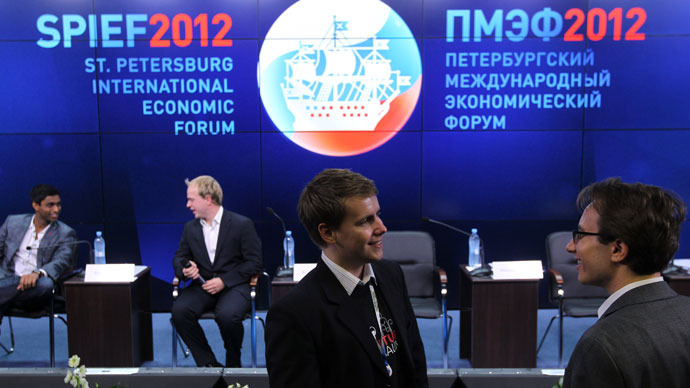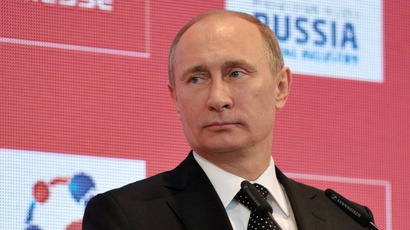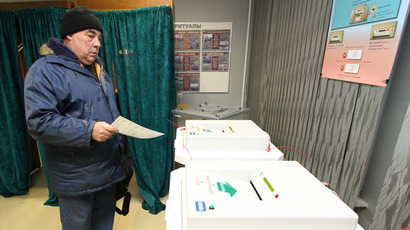‘Foreign agents’ law may hurt economy – Russian academics

The new law obliging internationally-funded economic research centers to register as ‘foreign agents’ lacks common sense and could bring the economy back to Soviet-style, with everything controlled by the state, leading economists have warned.
In a letter published by Vedomosti daily, a 15 Russian academics urge the government to reconsider the so-called ‘foreign agents’ law. They warn that incorrect application of this act may lead to a closure of research centers and ruin cooperation between independent economic analysts and the Russian authorities.
The highly-criticized and controversial law - which came into force in November last year - obliges all politically-active non-governmental organizations that receive foreign funding to register as foreign agents.
Currently - because of loose wording in the document - practically any non-profit organization may be forced to get that label if it gets sponsorship from abroad and has ‘politics’ or ‘authorities’ mentioned in their charter, experts say.
The authors of the letter insist that the requirement should only apply to organizations that are both sponsored from abroad and serve the interests of a foreign state or company.
“That’s exactly the approach used in other countries that have ‘foreign agents’ concept,” the authors noted.
They opined that economists – as part of their profession – are often involved in the development and the fulfillment of the economic policy. That includes the implementation of initiatives proposed by the government and discussions of reforms.
But since economics is a global science and because of underdevelopment of socio-economic research in Russia, analysis centers “seek cooperation with foreign partners” and look for various sources for their funding – including from abroad. This money is spent on education, including internship of Russian students in other countries, economic research and the publication of the results.
However, “the logic of Russian law enforcers suggests” that almost the entire expert community in the country is comprised of foreign agents, who must register in that status, the academics observed.
“In Russian the word ‘agent’ means a person who acts in someone else’s interests, or a spy. We, on the contrary, have always acted for the benefit of our country and are definitely not spies. Therefore, registering as foreign agents would be self-incrimination, which we can’t do,” they pointed out.
The government has made it clear it is interested in independent economic analysis. According to the expert community it has been trying to respond to this demand. However unannounced inspections of NGOs by prosecutors put this cooperation at risk.
The state officials have repeatedly underlined that the goal of the so-called foreign agents is to inform the public better on the sources of income of NGOs involved in politics.
“All our actions are connected not with the closures of these organizations, not with the ban, but with getting the cashflow under control,” President Vladimir Putin said back in April. “The freedom of NGOs is not limited in any way, they just have to register.”
Twelve of the authors of the Vedomosti letter took part in the drafting of the governmental project known as ‘Strategy-2020’ – a plan for Russia’s social and economic development until the end of the decade.














